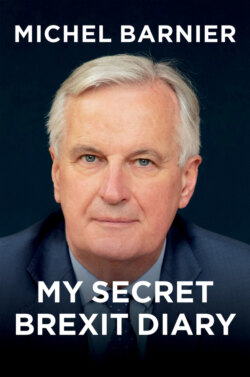Читать книгу My Secret Brexit Diary - Michel Barnier - Страница 25
Monday, 3 October 2016: Getting started
ОглавлениеTask Force 50 is open for business.*
For the moment, we are a small team.
Sabine Weyand, Stéphanie Riso and I have each chosen an assistant to help us with all the preparation, organization and planning.
At my side is Barthélemy Piche, a young elected representative from Savoie, who up until now has worked as a parliamentary assistant in the Senate. Justyna Lasik, a young and extremely dynamic and efficient Polish woman who successfully participated in the trade negotiations with Japan, will assist Sabine Weyand, while Stéphanie Riso will be joined by Marco Abate, who also has a great deal of experience, a good sense of humour – and a talent for telling anecdotes, which is no bad thing.
Of course, the indispensable Isabelle Misrachi will join us to strengthen our team. She has been with me since 1999, when I became European Commissioner for Regional Policy. Alternately assistant and head of my secretariat, she has amply proved her extraordinary tenacity, determination and organizational skills.
Georg Riekeles will be in charge of relations with the twenty-seven EU countries and the European Parliament, in his capacity as diplomatic adviser. Georg and I have been working together for almost fifteen years. In 2004 he was an international student at Sciences Po in Paris, and approached me at the end of a conference on European defence. He joined my team at the Quai d’Orsay as a young policy officer. He is Norwegian, and therefore a native of a country that is not a member of the EU. I have full confidence in him: ever creative and curious about people and ideas, this Nordic man, married to a Mediterranean, brings a different perspective and knows the UK well, having studied there as well as in Paris.
Finally, the Director-General of Human Resources, Irene Souka, recommended that I choose a young Belgian woman, Claire Saelens, as my secretary; we immediately struck up a good rapport.
Thanks to the efficiency of the technical services team, by pushing some parts of the Directorate-General for Communication and the Secretariat-General down the corridor, and in some cases even into a different building – for which I was truly sorry – we have come to occupy half of the fifth floor of the Berlaymont building, headquarters of the European Commission.
The open-plan office, with movable partitions, makes for a rather noisy environment. My office is the standard size of a general manager’s office. Straight away, I bring in a large oval glass table, which is to be my main tool for the upcoming negotiations. And above all, I hang on the wall a number of photos that are important to me and that immediately create a more familiar atmosphere.
A prized photo of Albertville on 17 October 1986, the day when we were chosen by the International Olympic Committee to host the 1992 Winter Olympics – a beautiful image of young Savoyards carrying their flag aloft, excited at the prospect of the Games to come.
A portrait of Nelson Mandela, on the occasion of our brief meeting on the tenth anniversary of the end of apartheid. And a photograph of the Polish Pope John Paul II, receiving myself, together with Jean-Claude Killy, for a private audience.
Above my head, I place a poster that was given to me long ago by one of the leaders of Poland’s Solidarity (Solidarność) movement, Bronisław Geremek. To me this poster is symbolic of the whole European project, an enterprise of reclaimed freedom and reunification.
In this office I bring together for the first time our small team, which is set to expand very quickly. We need to recruit experts to cover every one of the numerous and complex objects of negotiation. Stéphanie, Sabine and I draw up an initial organization chart. For the Commission, this will be both a unique and a complex negotiation. Many are keen to be a part of it, and I am sure we will have no difficulty in putting together the best possible team.
However, from the outset I point out – and will repeat to every new team member – that we must be ‘amicable pros’. Making sure we are professional and competent is the least we can do to honour such a historic and serious task. But being amicable is also key to increasing our collective efficiency: amicable within the team, amicable with the other Commission departments, and amicable with the outside world. I am reminded of Georges Pompidou’s insistence that no political team can do without ‘a collective morale to guide their actions’.
